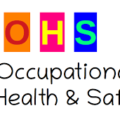Occupational health assessment also known as sickness absence referral, management referral or occupational health return to work assessment was one of the points in the Equality Act 2010 in the UK and the primary purpose of occupational health assessment was established as being the identification of disability and reasonable accommodations.
Occupational health usually involves an evaluation that an employee undergoes with a qualified occupational health assessor in order to assess and document specific health concerns, issues, and goals for the future. Occupational health assessment is usually done by a qualified nurse or doctor who has an additional qualification in occupational health and they usually do so at a time that is convenient for both the employee and the employer.
All the data and information regarding the occupational health assessment that is discussed during the appointment or meeting with the employee is kept completely confidential, but the final report that is drafted by occupational health assessment is shared with both the employer and employee, in the manner of advice that the occupational health assessment is giving both of them.
The commonly done occupational health assessments are based on the employees’ answers which may also include workplace surveys and referral forms.
The reports of the occupational health assessments are not something to be scared of, as they are meant to be used for making positive changes within the workplace that are meant to promote the employee’s health.
These reports made from occupational health assessments should not be treated as medical documents for personalized diagnoses and treatment plans, however, because they are not intended as such, but they may be used as a reference point with a diagnostician that the individual chooses to go to on their own time.
Occupational Health in the United Kingdom
As an employer in the United Kingdom, you are required by law to prevent physical and mental ill health in your workers that may occur as a result of your business activities. Your risk assessment will help you decide what actions you need to take to do this.
An important part of occupational health is concerned with how work and the work environment can impact on workers’ health, both physical and mental. It also includes how workers’ health can affect their ability to do their job. Put simply this means the effect of work on health and that of health on work.
In health and safety law, there are things you must do to make sure workers’ health is not adversely affected by their work and that workers are medically fit to carry out their work safely. This includes:
- Implementing health or medical surveillance when necessary
- Ensuring workers are medically fit to undertake the role required (your industry may produce such standards)
- Reviewing your risk assessment when a worker is returning to work following sickness absence or declares a health condition
There are other things that you should do where workers have health conditions or disabilities, either work-related or not. This includes complying with equality legislation when supporting workers both in and returning to work.
There are things that you could do which are aimed at improving the general health and well-being of workers. However, these actions should not be prioritized over the things you must do, should be based on your workers’ needs and be evidence-based.
What Not to Say to Occupational Health Assessment?
The list of things to avoid saying to an occupational health assessor is often similar to what you should not say to your employer. While the assessor is there to assist you, it is not an opportunity to vent your frustrations with your job.
Remember that the assessor is a health professional tasked with evaluating your medical condition and its relationship with your job. Therefore, it is important to stay focused on the medical aspects of the assessment and avoid letting personal issues with your job or employer cloud your judgment or distract from the purpose of the evaluation.
To ensure a successful Occupational Health Assessment, there are certain things you should avoid saying to the assessor, such as:
- Asking the assessor for special favors, such as help with your job or a referral.
- Being truthful about your symptoms and avoiding any dishonesty.
- Discrediting the assessor’s credentials or role as a health expert.
- Downplaying your symptoms or attempting to appear healthier than you are.
- Questioning the assessor’s professional judgment or expertise.
- Refusing the assessment or insisting that you do not need it.
There is a significant amount of fear surrounding occupational health assessments and for good reason. There have been numerous reports of bias in the assessments, resulting in issues for the individual being assessed instead of receiving assistance.
However, it is important to note that there are also instances where occupational health assessments have been beneficial. If you are experiencing medical issues and require help, it may be worth considering an assessment.
One of the benefits of an occupational health assessment is that it is conducted independently. This means that the assessor does not work for the same employer as you, allowing for an objective evaluation of your situation and potentially finding ways to assist you.
What is the role of Occupational Health Assessment?
Many people may not be fully aware of the purpose and responsibilities of occupational health assessments beyond the idea that they aim to improve the workplace environment for employees. While this is certainly one aspect of their role, occupational health assessments serve other important functions, including:
Assessing a worker’s health to determine if the workplace can support their recovery, even if they cannot provide medical treatment. For example, they may suggest ways to make work easier while an employee is recuperating.
Advising employers on how to gradually reintroduce employees back to work after a medical leave, taking into consideration the employee’s medical condition, job requirements, and health-related risks.
Aligning with the company’s health policies and procedures regarding sick pay schemes, rehabilitation, and opportunities for temporary or permanent job changes. Their assessments may impact these policies and their outcomes.
Conducting urgent health checks on employees who have not seen a doctor and may require immediate treatment, such as checking their blood pressure or heart rate, which can be included in their report.
Can I Refuse to See Occupational Health?
Yes, although you have the right to refuse to see Occupational Health, it is recommended to exercise this right only when you believe there is an issue of unfairness or when you have evidence that you do not need to see them. Employers may include clauses in contracts that require employees to visit Occupational Health, so it is important to check before refusing. Some contracts may also require employees to see a medic if written reports are needed for their health and functioning, and refusing in these cases may lead to consequences. In cases where the visits are mandated by the contract, failure to comply with a reasonable instruction may result in disciplinary action, including potential dismissal, according to laws related to occupational health.






